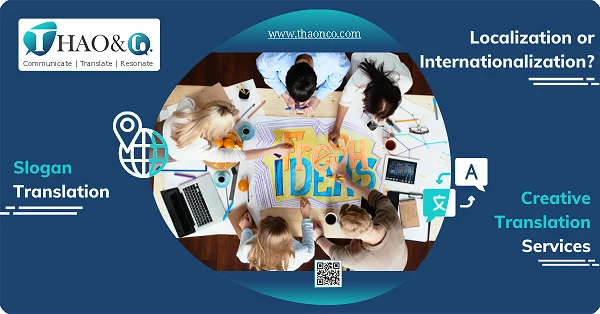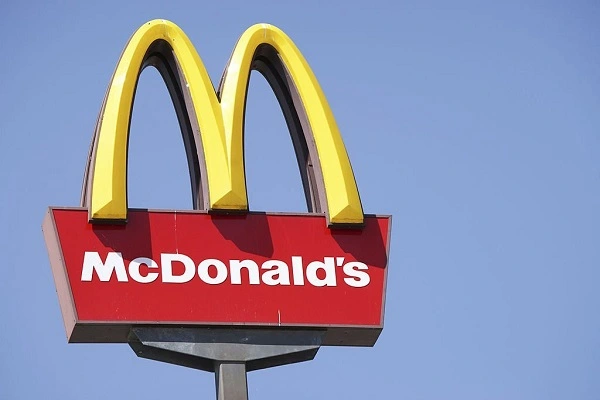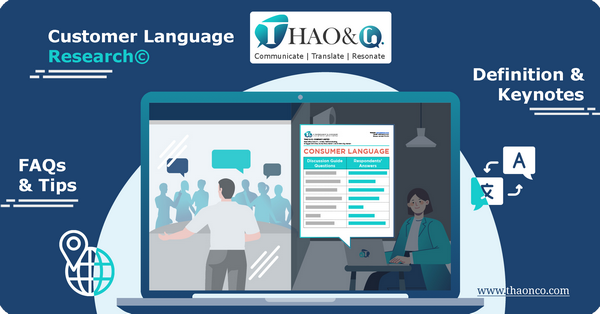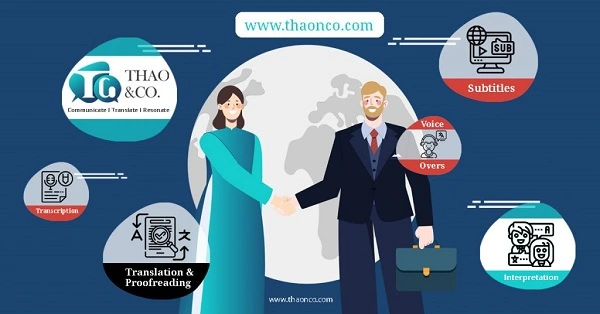A slogan serves as a medium for businesses to bring their message to customers. Creating natural yet impactful translations is a concern for many businesses and translators. Let’s explore with Thao & Co. some factors that facilitate the translation of advertising slogans and marketing campaigns through this article.
A slogan is a catchy phrase or a concise sentence associated with the image and core values of a specific product, campaign, or brand name. A creative, interesting, and memorable slogan can effectively enhance brand awareness.
Through slogans, businesses can highlight their advantages and set their brand apart from competitors. Additionally, advertising slogans play a crucial role in general marketing strategies.
Slogan translation is the process of adapting slogans from one language to another. The translation must convey the original message of the enterprise accurately while being natural, culturally appropriate, and maintaining creativity and appeal.
Translating marketing campaigns and advertising slogans is crucial for businesses looking to expand into new markets and promote their brand globally. This helps businesses create a positive impression with local customers, thereby enhancing competitiveness. Slogan translation can help maintain consistency in campaigns or branding on a global scale.

Here are the benefits businesses can reap with effective slogan translations.
Localization of a slogan involves adapting and translating content to fit the culture and language of a specific country or region. This includes the conversion of language, currency units, measurements, dimensions, and more to create a translation that is familiar and resonates with the locals as much as possible.
On the other hand, internationalizing campaign slogans focuses on creating flexible and highly reusable slogans. Slogans are translated into multiple languages without extensive modifications.
Thus, it is hard to determine which translation strategy is more optimal. Businesses can refer to the following elements when determining whether to prioritize localization or internationalization, or a combination of both to achieve maximum efficiency.
Accurate and quality slogan translation can aid businesses in achieving remarkable results. A notable example is McDonald’s and their famous slogan, “I’m lovin’ it”. In France, this slogan is translated as “Venez comme vous êtes,” meaning “Come as you are.” Meanwhile, in the Chinese market, the slogan is translated as “我就喜欢,” which means “I just like it.”

McDonald’s internationalization approach to this slogan is considered one of the most famous marketing slogans in history, maintaining a positive and globally resonant message since its launch in 2003. Regardless of the language it is translated into, this slogan uniformly conveys a positive, relatable message, and captures the high degree of resonance of the original message. This has enabled McDonald’s to maintain consistency in its global marketing campaigns and achieve outstanding revenue growth.
The quality of a translation depends on various factors. Here are the criteria from Thao & Co. that you can consider to ensure the translation quality of advertising slogans and campaigns.
Identifying the target audience involves researching various aspects of the customer group that the campaign or brand is targeting. Factors to consider include nationality, age, gender, consumer behavior, income, place of residence, and so on.
A comprehensive understanding of the target audience is crucial for translators to choose the most suitable style and expression to ensure that the translation resonates with the audience.
A creative brief serves as a summary that provides guidance, requirements, goals, etc., for the project. The more detailed and transparent the creative brief, the better the translator can grasp the core values, vision, and nature of the product or campaign. This is also an important consideration in ensuring the most accurate slogan translation.

Customer surveys can provide comprehensive insights into the language, preferences, desires, and needs of the target customers. Businesses and translators can rely on this information to create a captivating translation of the slogan. Survey results also help explore the value of the product and how a business’s service can address issues or simply arouse curiosity and interest in customers.
In the past, many major brands faced challenges due to the mistranslation of their slogans. In 1960, Pepsi’s slogan “Come Alive With the Pepsi Generation” was translated into “Pepsi brings your ancestors back from the grave” when introduced in the Chinese market. The translator mistakenly interpreted “Generation” as “Shìshì” (自杀), meaning suicide, instead of “Shìshī” (世世) – generation.
Coor beer’s slogan “Turn it loose” also faced a serious error in translation. In Spanish, their slogan unfortunately turned into “You will have diarrhea.”
Therefore, conducting surveys and researching the language of consumers is an essential step to avoid these regrettable mistakes. For example, using words that cause misunderstanding, unintentionally alluding to events or figures related to politics, religion, history, and more in that country.
This step involves evaluating and measuring the effectiveness of the translated slogan. In this process, businesses can gather data on customer feedback through social media and seminar interactions, feedback from customer service, conversion rates, and more. With this information, businesses can adjust and improve the translation if necessary. If the translation receives support and positive reactions from consumers, businesses can consider expanding and developing more impactful and effective campaign slogans based on the existing foundation.
With the current trend of globalization, slogans play a crucial role in being a business’s voice and representing its vision, and values on the international stage. An impressive and high-quality slogan can open the doors to potential opportunities.
Thao & Co. understands that slogan translation is not merely about translating words from the original language to the target language. The translation must not only accurately convey the original message but also have to be transcreated impactful and tailored to the target culture.
Businesses and partners seeking top-notch advertising slogan translations can opt for Thao & Co.’s Creative Translation and Consumer Language ResearchⒸ services. Creative translation, also known as transcreation, is an advanced translation method. Our native linguists will focus on conveying the original message in a way that is suitable, natural, and culturally aligned with the local market.
Additionally, our Consumer Language ResearchⒸ service involves collaborating with local market research agencies to survey the language, preferences, and interests of the target customers. This process can help our linguists determine the linguistic terms and expressions that are appropriate for consumers and provide the optimal translation solution for the slogan.

The criteria mentioned above collectively contribute to achieving a more impactful and effective translation of slogans. Slogans play a crucial role in conveying the message of a business to customers. A memorable slogan that leaves a positive impression on customers helps a business increase brand recognition and overall revenue significantly.
Companies and partners in need of translation services for advertising slogans, or campaign slogans, can fill in the information in our Get a Quote form. Thao & Co. will contact and provide detailed assistance as soon as possible.